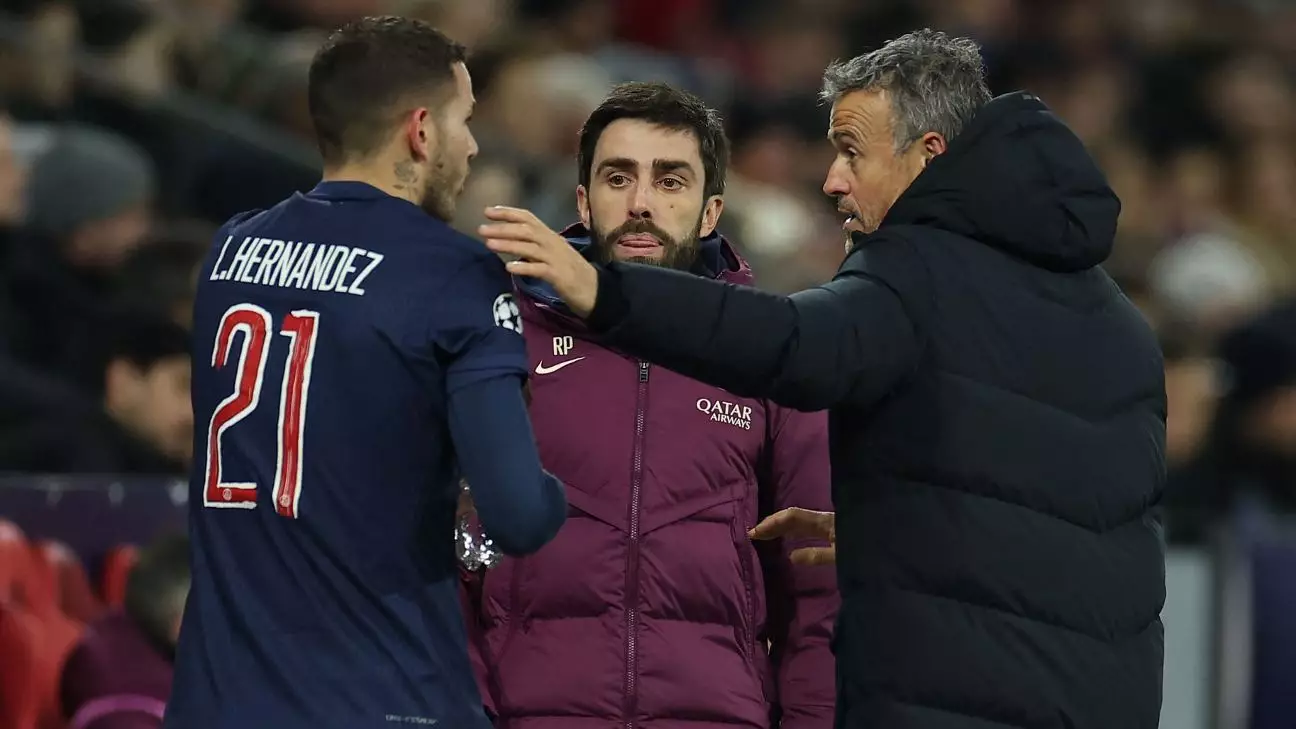In the high-stakes arena of the UEFA Champions League, Paris Saint-Germain (PSG) showcased resilience in their recent 3-0 victory against RB Salzburg. Despite the elation brought by the win, manager Luis Enrique emphasized the urgent need for improvement as his side navigates the tumultuous waters of the tournament. Starting the season with disappointing losses against formidable rivals like Atletico Madrid, Bayern Munich, and Arsenal had already cast a shadow over the team’s ambitions. While the latest triumph helped them crawl into playoff contention, Enrique remains acutely aware that this is merely the beginning of a journey fraught with challenges.
PSG’s current ranking reflects their struggle; sitting 24th with just seven points from six matches, the team is teetering on the brink of early elimination. Enrique’s post-match comments reveal a profound understanding of the precarious nature of tournament dynamics. “Football is a pretty unfair sport,” he remarked, highlighting how swiftly fortunes can change with a single goal. This statement encapsulates the tense atmosphere of Champions League football, where a momentary lapse can lead to grave consequences. Enrique’s candid acknowledgment of the team’s plight serves as both a warning and a rallying cry to his squad as they face a crucial phase in their campaign.
Enrique is adamant that the performance against Salzburg, while worthy of praise, does not meet the level he expects. By comparing it to previous encounters against PSV Eindhoven and Atletico Madrid, he creates a sense of urgency within his players. The coach’s admission, “this wasn’t a better game,” underlines not only his high standards but also the prevailing inconsistency within the squad. The lack of changes in personnel suggests that the players must find a way to elevate their game collectively, demonstrating the need for adaptability and growth.
Among the bright spots for PSG was Nuno Mendes, who played a pivotal role by scoring one of the goals. Enrique’s praise for Mendes illustrates an appreciation for the versatility he brings to the team. His ability to contribute both defensively and offensively marks him as a vital asset moving forward. As the coach noted, Mendes offers unique solutions with his physicality and technical skills, suggesting that his role may evolve as the tournament progresses. This recognition casts Mendes in the light of potential game-changer, who could aid PSG in their quest for dominance across the pitch.
With a decisive fixture against Pep Guardiola’s Manchester City looming on January 22, the gravity of the situation is palpable. Enrique’s words reflect a strategic mindset; the team cannot afford to let their guard down as they prepare for this high-profile encounter. Closing the campaign against VfB Stuttgart merely a week later raises further stakes. Enrique’s insistence on taking it “game by game” illustrates a tactical approach where each match is treated as a final, reinforcing the necessity for focus and determination.
As PSG stands at a crossroads in their Champions League journey, Luis Enrique’s reflections encapsulate the delicate balance of pride and concern. The triumph over Salzburg offers a semblance of hope, yet the challenges ahead necessitate greater improvement. The manager knows that to ascend the ranks of European football, his squad must rise to meet the expectations set before them. The next two matches will be crucial—not just for progression in the tournament, but for solidifying PSG’s identity as a force to be reckoned with. Only with continued efforts and strategic refinement can they realize their aspirations.
